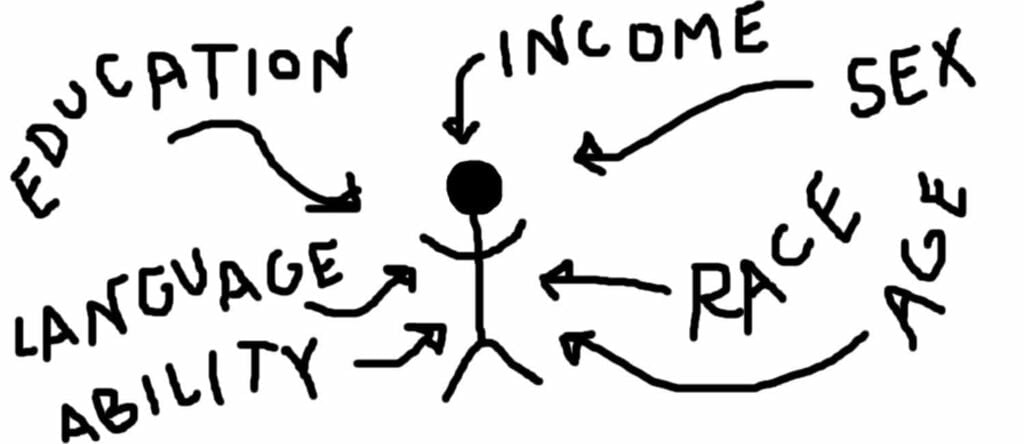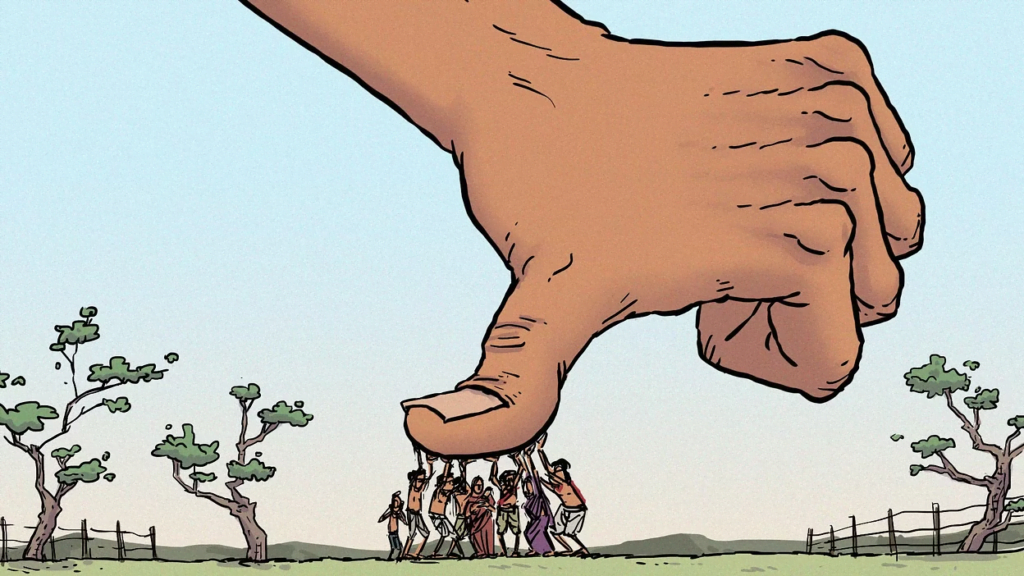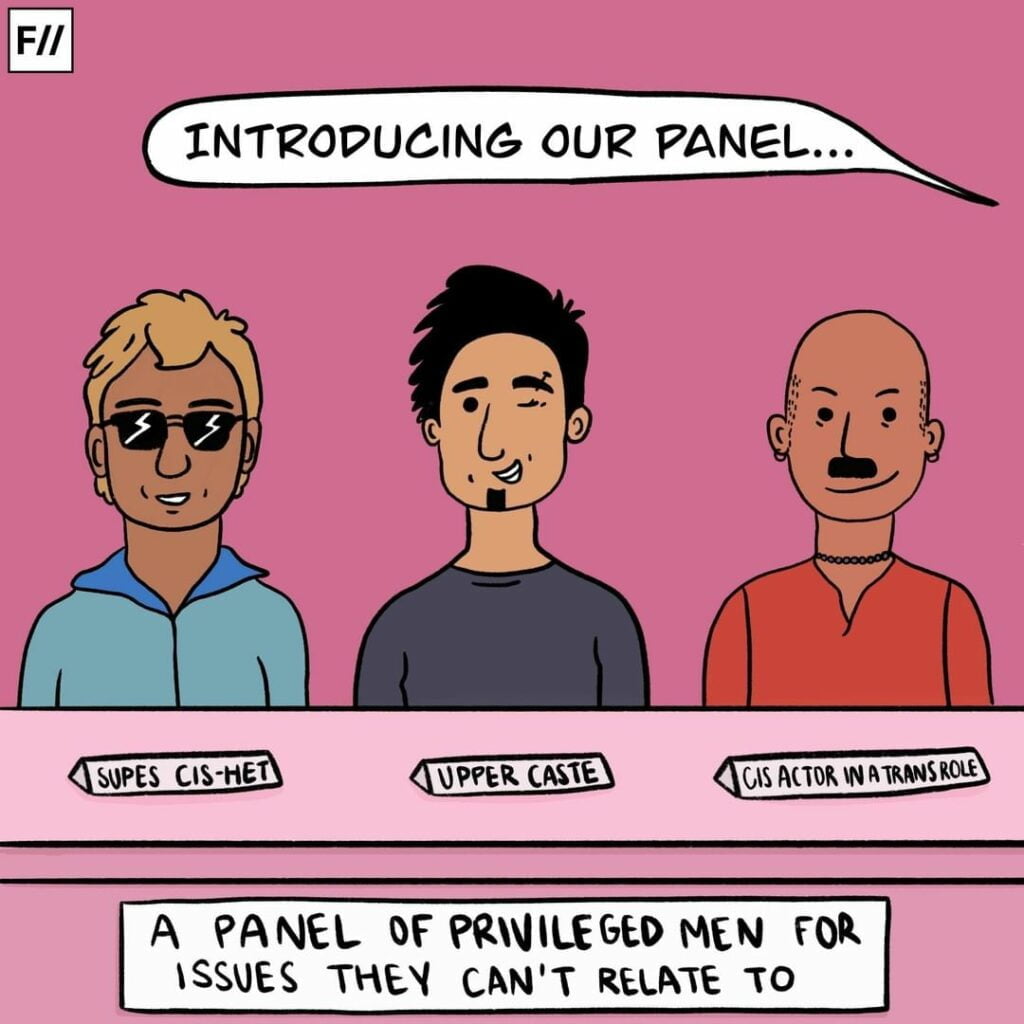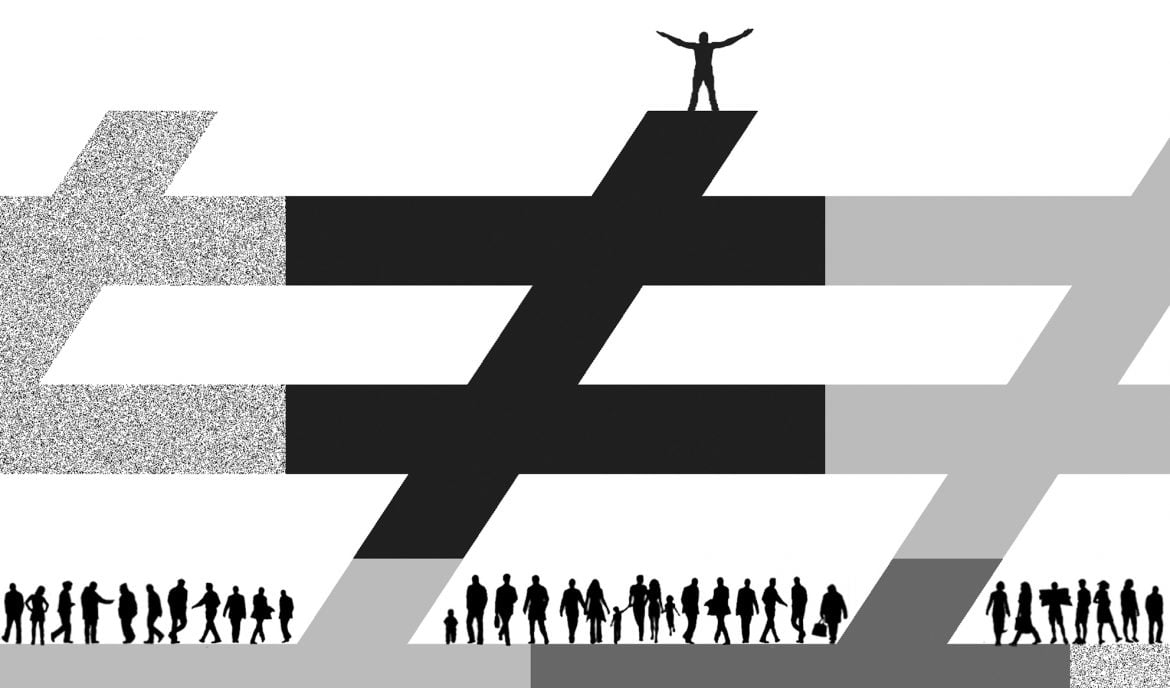In an age rampant with complex dialogues surrounding identities, such as caste, religion, gender, race, and sexuality, it becomes imperative to believe that an individual’s multiply-privileged position across these identities doesn’t matter and the world is fair. The illusion that problems are hardly ever systemic needs to be bolstered.
The intellectual rigour of the social sciences advocating for more rights, research, data, and discourse around social injustices need to be toned down so one can finally enjoy the emotionally arousing debates tone-deaf to reason and purpose. This article aims to demonstrate ways in which a multiply-privileged individual can live in peace with their ignorance and apoliticality.
1. Deny. Deny. Deny.
In a study on how white people deny their privilege, the authors demonstrated a strong correlation between embracing meritocracy and denial of racial inequity. They argued that “Whites” denial of societal inequity reflects concern for the personal self—specifically, the desire to see oneself as a talented and hard-working individual.

On this account, the prospect of in-group privilege threatens to undermine Whites’ desired view of self as meritorious. You are not privileged if you got here through sheer hard work. Your multiply-privileged position had no role in determining your access to education, resources, and employment. There was no systemic bias towards you that enabled the fruition of your hard work.
2. Piecemeal acknowledgement
Piecemeal acknowledgement of another person’s oppressed position (as opposed to one’s privileged position) essentially means believing that sexism, casteism, racism, xenophobia, transphobia, homophobia, and other kinds of discrimination only exist in everyday interactions. As long as you are kind and decent, and acknowledge that other people are disadvantaged, you can escape your position of dominance.
In her essay on white privilege, Peggy McIntosh differentiates between “unearned advantage,” and “conferred dominance.” Unearned advantage is what everyone in a just society should ideally have; unearned advantage shouldn’t be a privilege.

For instance, expectations to be treated as a decent human being is one such advantage that individuals of privileged social standings have and those oppressed due to their caste, race, or sex or some or all of these don’t. Conferred dominance, on the other hand, is what reinforces hierarchical social positions in society. It systematically over-empowers already powerful groups. For example, being ignorant and dismissive of individuals from less powerful groups without consequences, and in fact, with encouragement.
To defend one’s position of privilege, one must continue to distance oneself from the fact that they are part of the problem. The dominance conferred to them by birth because of their gender, caste, race, religion, or sexuality is not systemic and doesn’t come at the cost of those multiply disadvantaged. You are not mean! That should be okay.
3. Be objective
Objectivity is perhaps the strongest arrow in your quiver. It sounds very intellectual; it has to work. Saying “I am objective” or “I am neutral” implies the existence of one truth; one overarching point of view that trumps other points of view. This eliminates the possibility of multiply-oppressed individuals as legitimate knowledge-makers. Take the condescending stance that you have a bird’s eye view, that you have special knowledge that others with differently lived realities are incapable of possessing.
Objectivity is perhaps the strongest arrow in your quiver. It sounds very intellectual; it has to work. Saying “I am objective” or “I am neutral” implies the existence of one truth; one overarching point of view that trumps other points of view. This eliminates the possibility of multiply-oppressed individuals as legitimate knowledge-makers.
The neutral, objective knowledge that only you have intelligence enough to realise allows for paternalism: it renders anyone speaking from their diverse realities as needing perspective and a lack of bias. Other people don’t know any better; they are too emotional.
4. Live in an echo chamber… but have a few friends that are not like you
The best way to reaffirm your beliefs without having them challenged is by socialising with other individuals who are similarly situated as you in the social hierarchy. Watching news from platforms controlled by people from powerful groups and consuming media that pander to your dogmatic ideals is crucial to this exercise.

However, if you are to defend your privilege, you must assert your anti-discriminatory orientation. Credibility props in the form of gay friends and women colleagues become imperative.
When challenged, you may start the sentence with, “You see, I am not prejudiced because I have so many *insert socially disadvantaged identity* friends.” Connect this to point 3. “I have an objective point of view because I tolerate a few *insert identity* people; it’s the *insert identity* community as a whole that I have a problem with.” This works like a charm.
5. Perceive yourself as victimised and defend your privilege
Claiming yourself to be a victim of persecution at the hands of less powerful groups is a way in which you could justify your hostility towards these groups. This will make you appear righteous, justifiably angry, and in need of justice. For instance, you may express your fear regarding the rise in the Muslim population of India.
Claiming yourself to be a victim of persecution at the hands of less powerful groups is a way in which you could justify your hostility towards these groups. This will make you appear as righteous, justifiably angry, and in need of justice.
Intercaste marriages and same-sex love actively threaten your worldview and force you to acknowledge the existence of unconventional ways of living and loving. How will you make sense of these new realities? Assert how these become attacks on your culture, belief systems, and your very sense of self.
Hope this helps. Practice and you shall oppress!
About the author(s)
Shakti (she/her) is an English major and an aspiring tea sommelier. She loves reading poetry and drama and can be found with a Kindle most time. She intends to become a teacher of humanities and is passionate about literature, films, politics, and history. In her free time, she has been caught watching cringe content, however, she fervently denies these claims.





